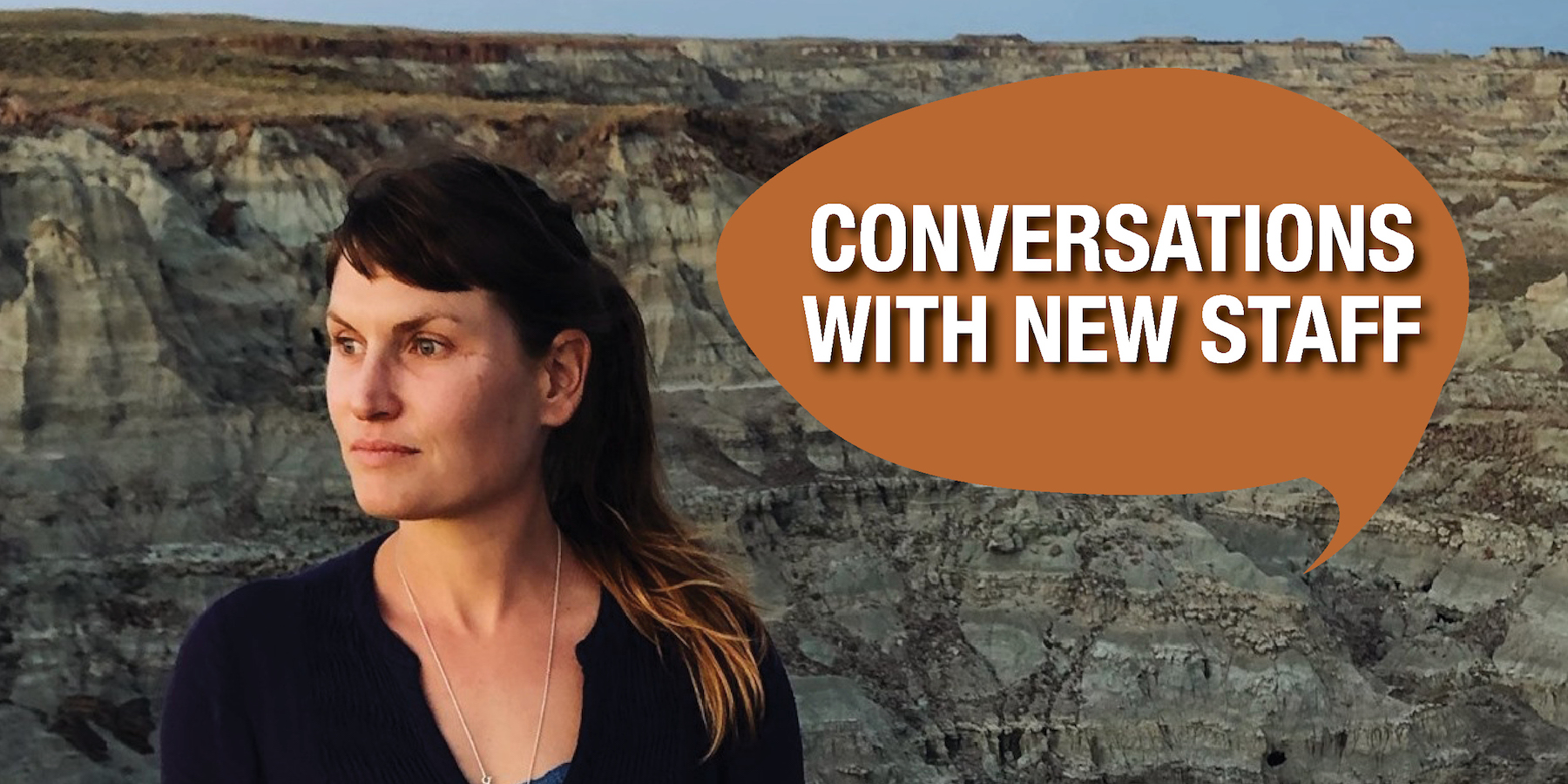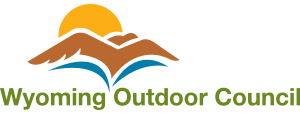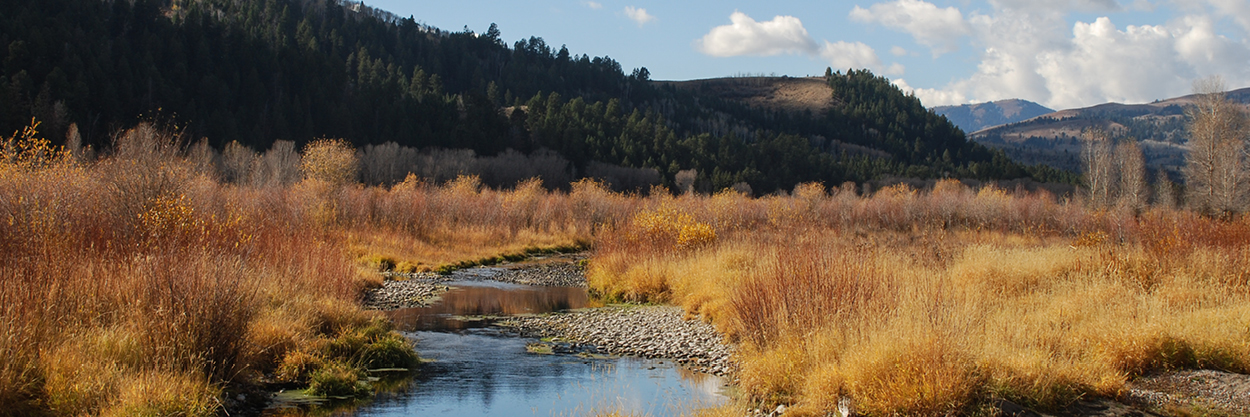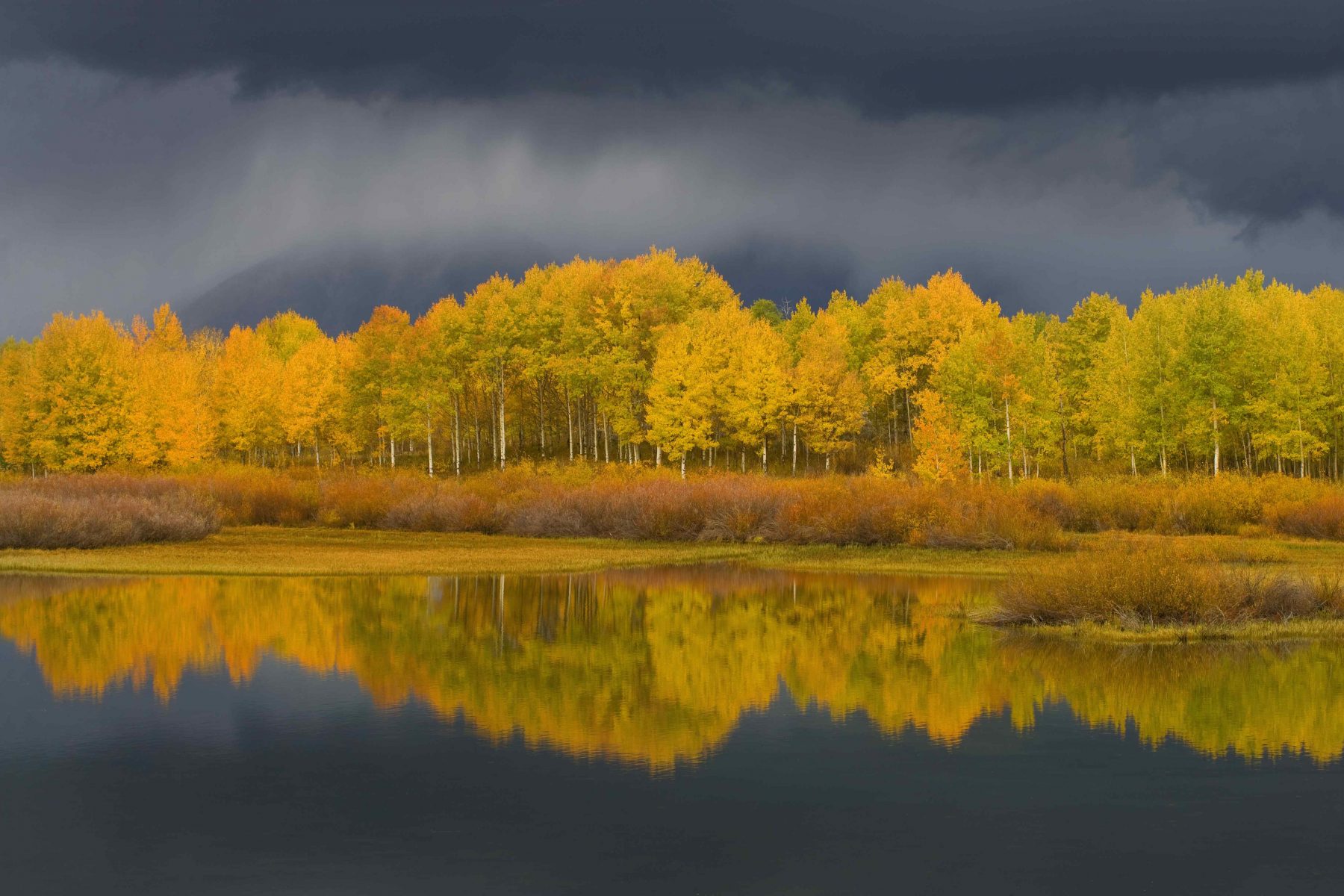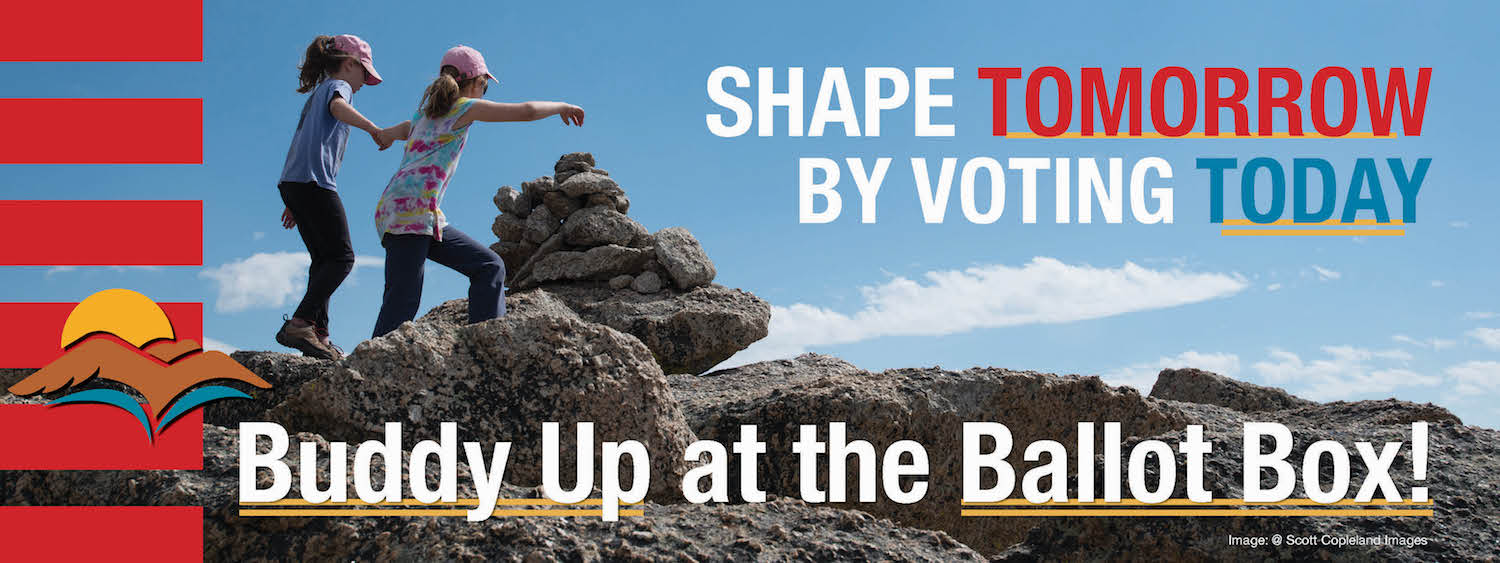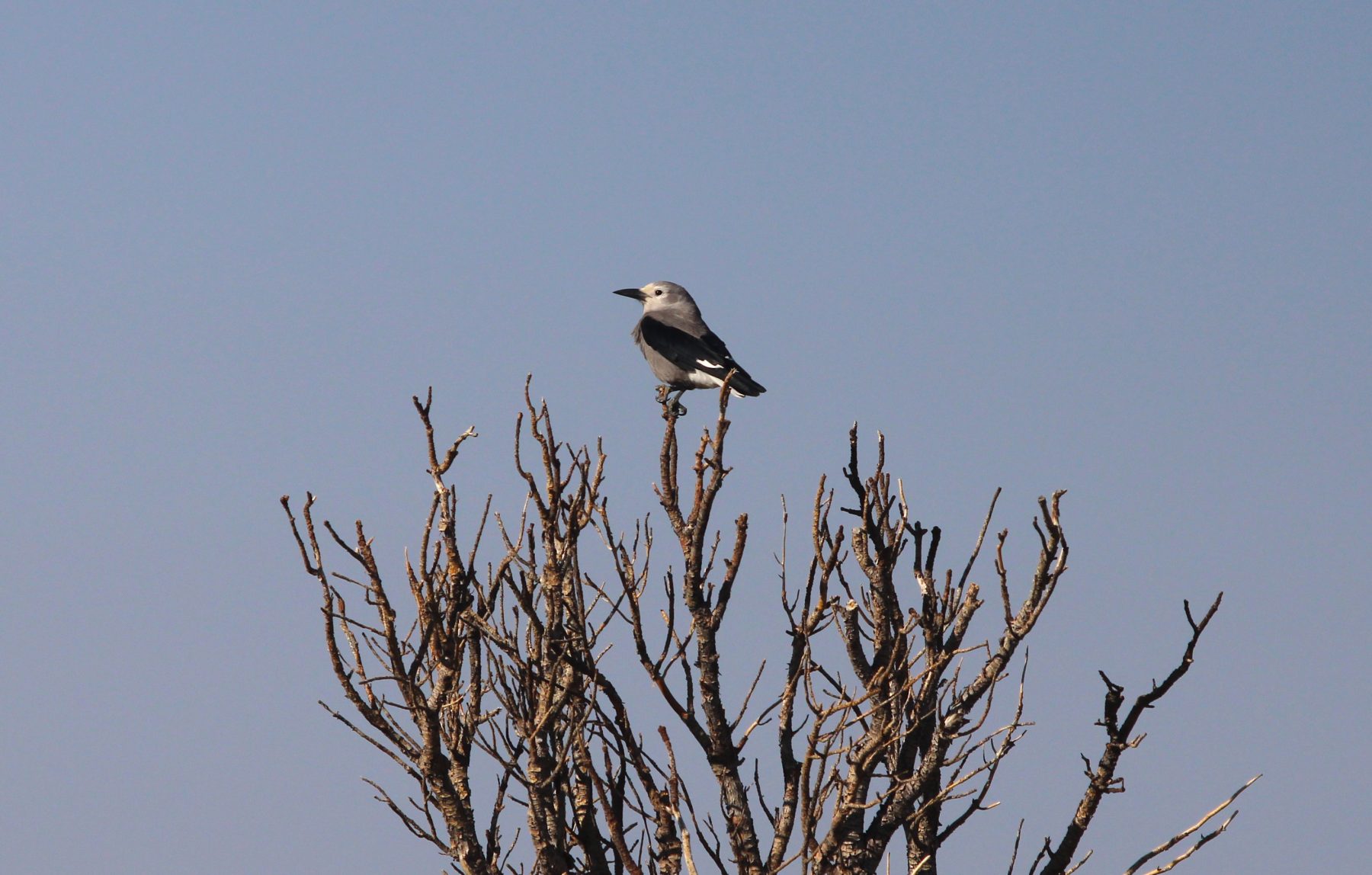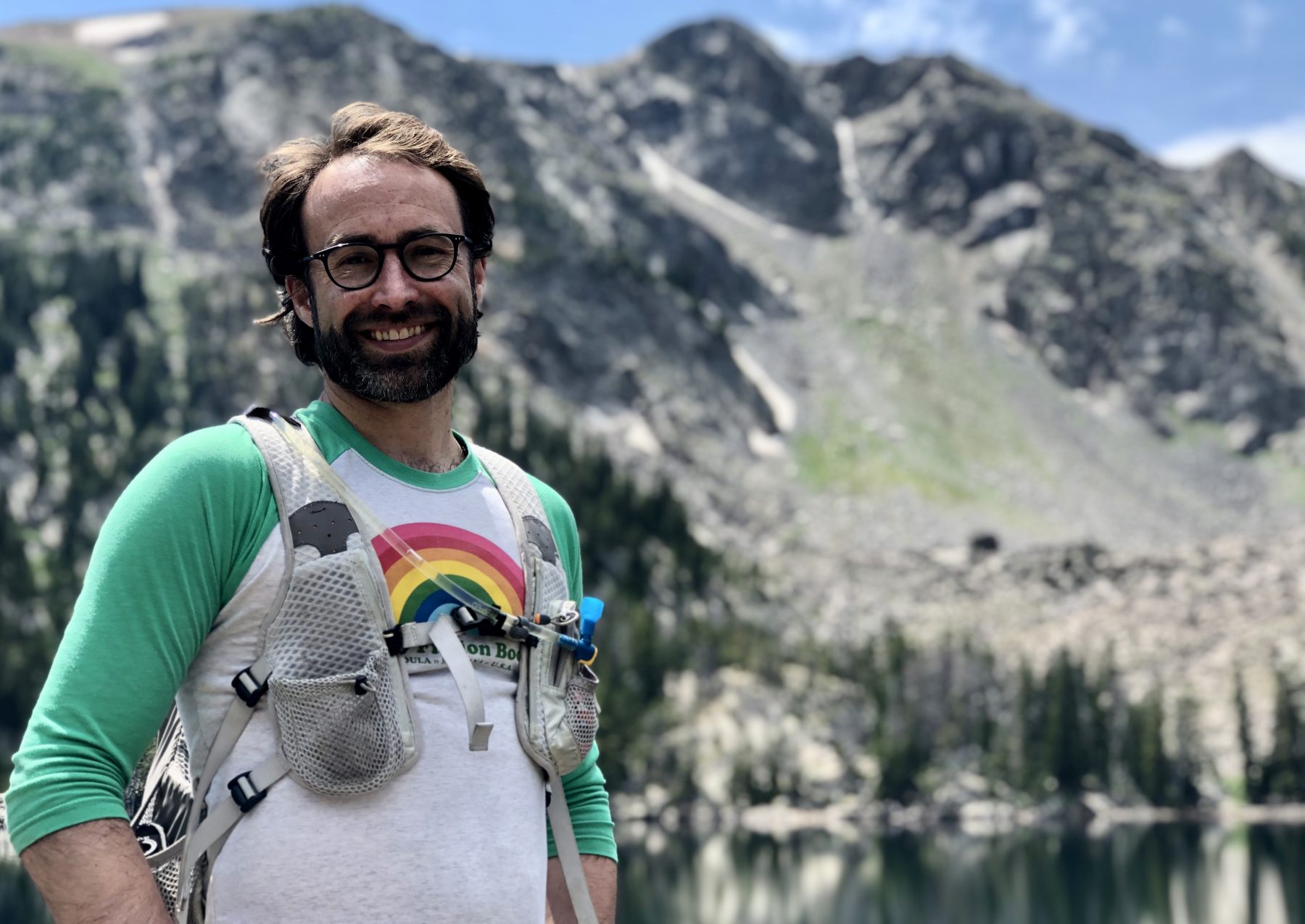[et_pb_section fb_built=”1″ _builder_version=”4.6.0″ _module_preset=”default”][et_pb_row _builder_version=”4.6.0″ _module_preset=”default”][et_pb_column type=”4_4″ _builder_version=”4.6.0″ _module_preset=”default”][et_pb_text _builder_version=”4.6.0″ _module_preset=”default” hover_enabled=”0″ text_line_height=”1.7em” sticky_enabled=”0″]
The nights are turning crisp, hunting season is in full swing, and around Wyoming the aspens are turning fiery orange and gold. It can only mean one thing: Election Day is almost here!
Although the hoopla of the presidential campaign attracts an outsized share of the public’s attention, Wyoming citizens also have the responsibility to select many other local, state, and federal officials that represent our communities, manage our public resources, and make decisions every day that impact Wyoming’s future and the conservation issues you care about. That’s why it’s essential to educate yourself about all the candidates on the ballot and cast a vote that ensures your values are represented at all levels of government.
The mission of the Wyoming Outdoor Council is to preserve our state’s quality of life now and for future generations, and voting is one way to meet that challenge. We’ve collected the information below to make sure you have the tools to get out to vote on (or before!) Nov. 3.
Before we get started, remember that your county clerk is your best resource if you have questions about voting. The state of Wyoming also launched a new website this year — www.letsvotewyo.org — with information on how to register, find your polling place, request an absentee ballot, learn about COVID-19 precautions, or contact your clerk’s office.
REGISTERING TO VOTE
You can vote if you’re at least 18 years old on Election Day, a U.S. citizen, and reside in Wyoming. You must also be registered to vote. Fortunately, Wyoming has same-day voter registration, meaning you can register at your polling location and vote immediately.
Of course, you can register in advance by visiting your county clerk’s office. Applications can also be submitted by mail, but you’ll need to have your application form notarized if you go this route.
Regardless of when and where you register, you’ll need to provide some form of ID. A Wyoming driver’s license is easiest, but you can also use a state, tribal, student, or military ID, or a passport. If you don’t have a Wyoming driver’s license you’ll also need to know the last four digits of your Social Security number. If you don’t have a driver’s license or a Social Security number you’ll need to contact your county clerk’s office for help registering.
Wyoming purges its voter rolls after every general election to remove citizens who did not participate. If you didn’t vote in the 2018 election you’ll need to re-register before you can vote in 2020. You must also re-register if you moved to a different county. If you moved within the same county you can update your current registration at the polls or your clerk’s office.
OTHER CIRCUMSTANCES
College students can register to vote in either their hometown or the community where their school is located, whichever they consider their primary residence.
Members of the military can register and vote absentee in their home community. There are also special considerations available for military spouses and children of service members.
People experiencing homelessness must provide a physical location and mailing address. Shelters can often be used for voter registration locations.
People who have been convicted of a felony cannot register to vote in Wyoming unless they have had their voting rights restored. For non-violent, first-time offenses this process has been automated since 2010. If you completed probation, parole, or a prison sentence prior to 2010 you need to apply to have your voting rights restored through the Department of Corrections.
VOTING BY MAIL
This election season, many Wyomingites are opting for the convenience of voting by mail to avoid visiting a crowded polling location amid the pandemic. This has long been a popular choice in the state, where rural living can make access to the polls challenging. And there’s a real added benefit: Voting by mail lets you spend as much time as you need with your ballot, so you can research candidates you aren’t familiar with and make thoughtful choices instead of being left puzzled by judicial retentions or a proposed constitutional amendment.
Absentee ballots must be received before polls close at 7 p.m. on Nov. 3. The Equality State Policy Center recommends that voters mail their ballots no later than seven days before the election to ensure on-time delivery. If you miss this deadline, or just want to save a stamp, you can drop off your absentee ballot in person at your county clerk’s office.
You can request an absentee ballot by mail, email, phone, or in person. The last day to request a ballot is October 20, but you can still vote early in person between then and Election Day. Be sure to read the instructions on your ballot, and call the clerk’s office if you have any questions.
VOTING EARLY
Wyoming also offers in-person absentee voting, commonly known as early voting. You can vote before Election Day at your county’s early voting location: Frequently this is the county clerk’s office, but some counties set up an early voting center elsewhere. Voting early is a great option if you prefer to vote in person but your work or family schedule will make it difficult to get to the polls on Nov. 3, or you want to avoid a crowd or possible long lines.
VOTING ON ELECTION DAY
Election Day during the COVID-19 pandemic will function like in years past, but with a few changes. Just like your local grocery store, surfaces will be sanitized frequently and voters will be asked to stand six feet apart while waiting in line. Face coverings aren’t required for voters but, since you’re already doing your civic duty, why not wear a mask to help keep your neighbors safe?
Even if you’ve been visiting the same polling location for years, it’s a good idea to look up your polling place through your county clerk’s website or www.letsvotewyo.org. Some locations have changed temporarily due to the pandemic, and some communities have closed or consolidated polling places in recent years.
Identification is not required to vote but be sure to bring your ID if you need to register at the polls. And, most importantly …
MAKE A PLAN!
It’s not rocket science, but it is scientifically proven that you’re much more likely to follow through on your intentions to vote if you make a specific plan.
Decide (right now is a great opportunity!) exactly how and when you’re going to vote. Making a plan is especially important if you have obstacles that make voting difficult. Maybe you work long hours, live far from your polling place, or are busy with your kids’ after-school activities. Choose a specific time when you’ll visit the polls or mail your ballot, put it on your calendar, and share your plans with family or friends to keep yourself accountable.
BUDDY UP AT THE BALLOT BOX
Now that you have a plan to vote, how else can you make an impact? Bring a friend!
In any given election, only about half of Wyoming voters actually participate. To help increase voter turnout this year, we created a tool that will encourage you to pick a voting buddy and make sure they cast a ballot. (It might help you remember to get to the polls, too!)
[/et_pb_text][/et_pb_column][/et_pb_row][/et_pb_section][et_pb_section fb_built=”1″ _builder_version=”4.6.0″ _module_preset=”default”][et_pb_row _builder_version=”4.6.0″ _module_preset=”default”][et_pb_column type=”4_4″ _builder_version=”4.6.0″ _module_preset=”default”][et_pb_button button_url=”https://secure.everyaction.com/1M1W3ELi4kKWgax9RxhLXQ2?sourceid=1065276″ url_new_window=”on” button_text=”REMIND A FRIEND TO VOTE” _builder_version=”4.6.0″ _module_preset=”default”][/et_pb_button][et_pb_text _builder_version=”4.6.0″ _module_preset=”default” hover_enabled=”0″ text_line_height=”1.7em” sticky_enabled=”0″]
It’s pretty simple — just complete the form with the name of someone that you will personally commit to remind to vote. You’ll receive two customized emails in the coming weeks reminding you to reach out to your voting buddy, and some voting-related resources to ensure that your buddy has all the information they need to make their voices heard at the polls this year. Don’t worry, we won’t ask you for their contact information or any other personal details, and we won’t save their names after the election is over; this is just for you!
So, what are you waiting for? Make sure you’re registered, educate yourself about your local races, make a plan, and vote! Wyoming will be better for it.
[/et_pb_text][/et_pb_column][/et_pb_row][/et_pb_section]


